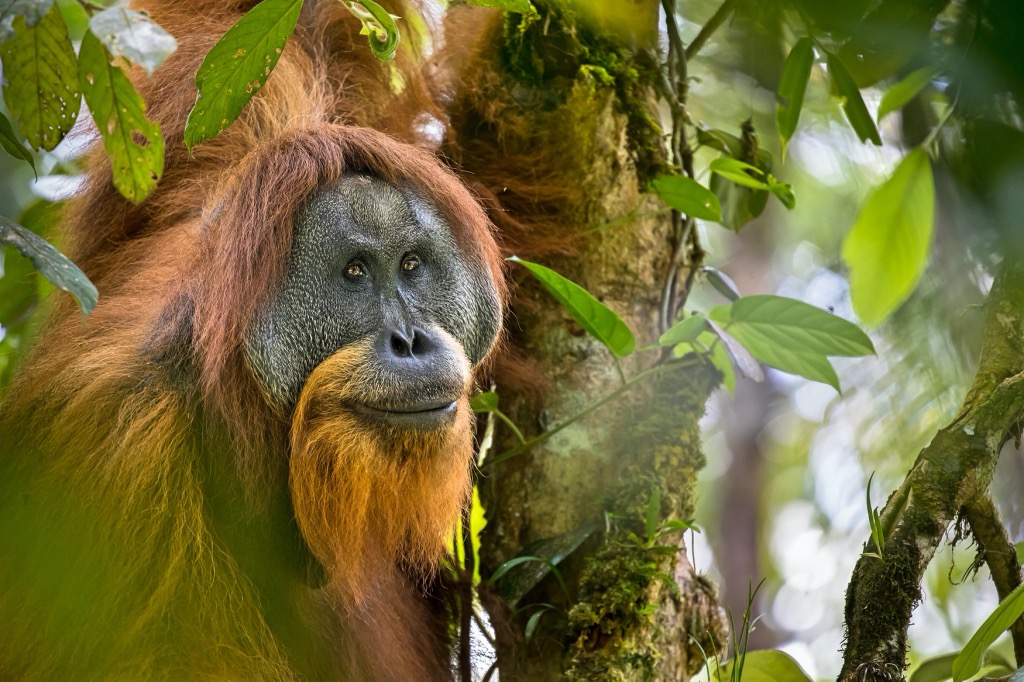Orangutans are among the most intelligent primates on earth, capable of constructing, using tools, and living in colonies with distinct cultures. Unfortunately, the world’s orangutan population has been declining at a rapid rate due to poaching, destruction of habitat, and the illegal pet trade. There are three species of great apes native to Indonesia and Malaysia. According to the WWF, Bornean orangutan populations have declined by more than 50% over the past 60 years and the species’ habitat has been reduced by at least 55% over the past 20 years. Orangutans are largely solitary and spend much of their lives in trees, complicating conservationist efforts to accurately measure remaining populations.
The experts faced a challenge of analyzing a huge volume of data, comprising mainly of images. It took days to analyze these photos. The accuracy of the data was also a concern. So WWF-Indonesia was looking for a technology partner to resolve these challenges and cut down the time to analyze the data.
Amazon Web Services, (AWS), an Amazon.com company, recently stepped in to collaborate with WWF-Indonesia, a non-profit organization in the WWF’s global network, to accelerate efforts to save critically endangered orangutans in Indonesia. Using AWS machine learning services, WWF-Indonesia can better understand the size and health of orangutan populations in their native habitat, enabling the non-profit to survey more territories with fewer resources, reduce operating expenses, and channel more of the conservation funding to protect the biodiversity of Indonesia.
AWS technologies to the rescue
Using AWS cloud technology, WWF-Indonesia now automatically gathers images from mobile phones and motion-activated cameras at its basecamp, and uploads these to Amazon Simple Storage Service (Amazon S3) where they are analyzed. Using AWS technologies including Amazon SageMaker, a fully-managed machine learning service that allows data scientists and developers to quickly and easily build, train, and deploy machine learning models at scale, WWF Indonesia has reduced its analysis time from up to three days to less than ten minutes. It has also been able to increase the accuracy and specificity of its data, which includes measurements such as gender ratio and age, assess the viability of populations, and quickly identifies whether individuals are pregnant, ill, or suffering from injuries which require immediate treatment. By adopting machine learning, WWF-Indonesia has reduced its reliance on a limited pool of conservationist experts and improved the accuracy and breadth of its data about orangutan populations.
In the future, WWF-Indonesia plans to explore the use of additional machine learning services, such as Amazon Rekognition, an image and video analysis service, to further improve the speed and accuracy of its population identification and tracking efforts.
“As a nonprofit, we are always looking for ways to work smarter and apply our resources more effectively to better carry out our conservation mission. Using AWS services like Amazon SageMaker and Amazon S3, we are starting to make a tool accessible for the field surveyors, even with limited expertise and capacity, to identify wildlife in its natural habitat with a high degree of accuracy. With careful use of technology, this innovation will help the biologists and conservationists to effectively and cost-efficiently monitor the wildlife behavior through time and thus we can allocate our resources to scale up the monitoring efforts and invest more in conservation actions,” said Aria Nagasastra, Finance and Technology Director of WWF-Indonesia. “The collaboration between WWF-Indonesia and AWS on innovative new technology solutions can lead to the opportunity to elevate the biodiversity conservation practices in Indonesia to the next level,” added Aria.
“Empowering non-profit organizations with cloud technology to make the world a better place is a priority for AWS in the public sector,” said Peter Moore, Regional Managing Director for Asia Pacific and Japan, Worldwide Public Sector, Amazon Web Services. “We are very pleased to help WWF-Indonesia accelerate their mission to conserve the orangutan population, and we are committed to helping them to innovate further on AWS to protect other endangered species around the world.”
AWS offers over 175 fully featured services for compute, storage, databases, networking, analytics, robotics, machine learning and artificial intelligence (AI), Internet of Things (IoT), mobile, security, hybrid, virtual and augmented reality (VR and AR), media, and application development, deployment, and management from 76 Availability Zones (AZs) within 24 geographic regions.

